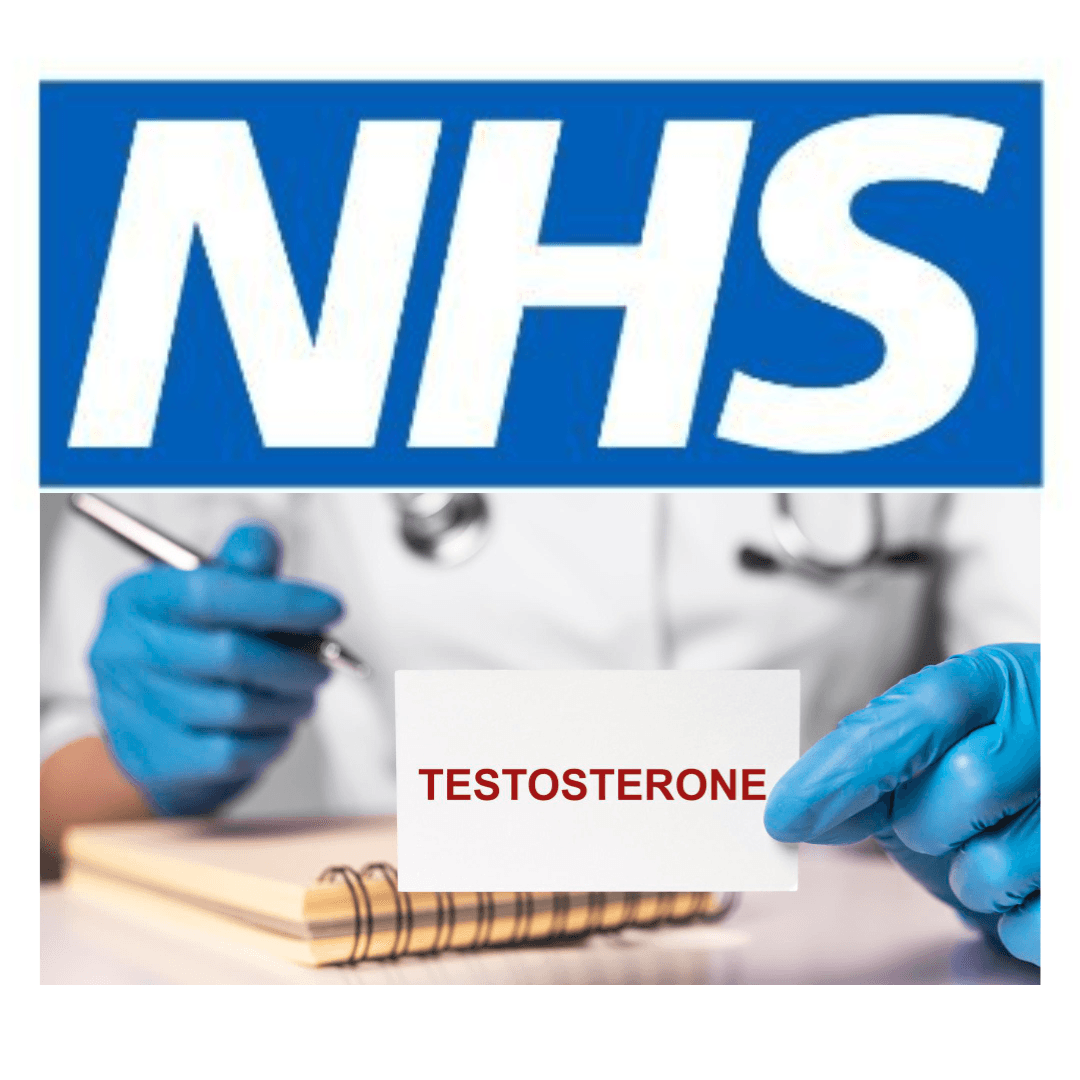
 Instagram
Instagram
Related products
Can you get testosterone on the NHS?

Related products
Eligibility Criteria for Testosterone Treatment on the NHS
Gender and age requirements
The eligibility for testosterone treatment on the NHS is primarily defined by specific gender and age requirements. Generally, adult men with clinically low levels of testosterone may qualify for treatment, and certain women may also be eligible under special circumstances. "Gender and age play significant roles in determining eligibility for testosterone treatment on the NHS. Clinical guidelines ensure that those who genuinely need treatment receive it", explains Dr. Hannah Turner, a leading endocrinologist in the UK.
Medical conditions that qualify
Several medical conditions can lead to a deficiency in testosterone and thus qualify for treatment. These may include hypogonadism, pituitary disorders, and certain genetic conditions. "Medical conditions leading to testosterone deficiency are varied and must be thoroughly diagnosed to qualify for NHS treatment", notes Dr. Simon Fletcher, a medical specialist in hormone disorders.
Psychological assessment and necessity
In addition to physiological needs, a comprehensive psychological assessment may be required to ensure the necessity of treatment. This assessment evaluates the mental and emotional impact of low testosterone levels and the expected benefits of treatment. "The psychological component is vital. It helps to ascertain that the treatment aligns with the patient's overall well-being and health goals" says Dr. Emily Davis, a psychologist specialized in hormone-related issues.
The Process of Getting Testosterone Treatment through the NHS
Initial consultation with a General Practitioner (GP)
The process of obtaining testosterone treatment on the NHS begins with an initial consultation with a General Practitioner. This consultation involves a detailed examination of medical history, symptoms, and the need for further evaluation.
Referral to an endocrinologist or specialist clinic
If the GP deems it necessary, a referral to an endocrinologist or a specialist hormone clinic is made. This step ensures that the patient receives expert evaluation and a personalized treatment plan. "Referral to a specialist ensures that the patient's unique needs are assessed and addressed by experts in the field", states Dr. Laura Morgan, a GP in the UK.
Various tests and assessments
Following the referral, a series of tests and assessments are conducted to confirm the diagnosis and design the most appropriate treatment plan. These can include blood tests, physical examinations, and thorough evaluations of medical history.
Ongoing monitoring and follow-up
Once the treatment begins, ongoing monitoring and follow-up appointments are essential. They ensure that the therapy is working effectively and adjust the treatment plan if needed. "Consistent follow-up and monitoring ensure that the treatment remains aligned with the patient's health goals and that any potential side effects are managed promptly", states Dr. Rebecca Evans, a hormone specialist.
Types of Testosterone Treatments Available on the NHS
Injections, patches, and gels
The NHS provides various forms of testosterone treatment, including injections, patches, and gels. These methods are chosen based on individual needs, preferences, and medical considerations.
Treatment plans and how they vary
Treatment plans on the NHS are personalized and may vary depending on the underlying cause of low testosterone, patient's lifestyle, age, and overall health. Detailed discussions with healthcare providers ensure the optimal treatment pathway. "Every patient requires a treatment plan tailored to their unique situation. It requires careful consideration and collaboration between healthcare providers and the patient", elaborates Dr. Peter Harris, an endocrinologist in UK.
Comparisons with private options
Compared to private healthcare options, the NHS provides comprehensive and cost-effective care. However, the types of treatments and availability may differ, and some patients may opt for private care for more immediate access or specialized treatments.

Buy your Testosterone Test online today.
Cost and Funding for Testosterone Treatment on the NHS
Is testosterone treatment free?
Testosterone treatment on the NHS is typically provided at no cost to eligible patients. However, certain additional expenses might be incurred, such as prescription charges.
Possible additional costs
While the core treatment is usually free, some patients may encounter additional costs for related medications or specific brands of testosterone therapy not covered by the NHS.
Support for those who cannot afford treatment
The NHS offers support for those who may struggle with any associated costs. Various exemptions and assistance programs are available to ensure that treatment is accessible to all eligible individuals.
Potential Challenges and Delays in Accessing Treatment
Waiting times and why they vary
Potential challenges in accessing testosterone treatment on the NHS may include varying waiting times. Factors influencing these waiting times can include location, availability of specialists, and individual clinical needs. "Waiting times can be a challenge, but they are influenced by complex factors, including regional healthcare resources and individual patient needs", Dr. Martin Collins from UK Health Research Institute.
Potential barriers and how to overcome them
Other potential barriers might include misunderstandings about eligibility, reluctance to seek help, or difficulties navigating the healthcare system. Education, guidance from healthcare providers, and patient advocacy can play vital roles in overcoming these barriers.
Frequently Ask Questions
This section will delve into some of the commonly asked questions about testosterone treatment on the NHS, including alternatives, safety, timelines, and how to address concerns or complaints.
What alternatives are there to NHS treatment?
Alternatives to NHS treatment include private clinics, which may offer different treatment methods or shorter waiting times. However, costs can be significantly higher. "Exploring private care can provide more immediate access, but patients should weigh the benefits against the costs and ensure the quality of care", states Dr. Sarah Wilson, a hormone specialist in UK.
Can children and adolescents get testosterone on the NHS?
Yes, children and adolescents with medically diagnosed hormone imbalances may receive treatment through the NHS, but this requires careful evaluation by paediatric endocrinologists. The treatment aligns with specific guidelines to ensure safety and efficacy.
Is testosterone therapy on the NHS safe and monitored?
Testosterone therapy on the NHS is generally considered safe and well-monitored. Regular follow-ups, blood tests, and professional guidance are part of the treatment protocol.
How long does it take to start testosterone therapy on the NHS?
The time to start therapy can vary depending on individual medical conditions, location, and availability of specialists. It might take several weeks to a few months from initial consultation to the start of treatment.
Can I switch from private to NHS for testosterone treatment?
Switching from private to NHS for treatment is possible. However, patients should consult with their current provider and a GP within the NHS to ensure a smooth transition.
How to complain or appeal if denied testosterone on the NHS?
If denied treatment, patients have the right to complain or appeal through official NHS channels. Assistance from patient advocacy groups may also be beneficial.
What are the long-term effects of NHS testosterone treatment?
The long-term effects depend on individual responses and adherence to the treatment plan. Regular monitoring helps to manage potential risks and ensure the ongoing success of therapy.
Is there a shortage of testosterone treatment in the NHS?
As of the latest reports, there doesn’t appear to be a general shortage of testosterone treatment in the NHS. However, local variations may occur.
Testimonials from Individuals Who Have Received Testosterone on the NHS
Success stories and positive experiences
Many individuals share success stories and positive experiences with NHS testosterone treatment. These stories highlight the quality of care, support, and overall improvement in quality of life.
Challenges and lessons learned
Despite success stories, some individuals face challenges such as long waiting times or navigating the system. Their experiences offer insights into lessons learned and how to advocate for oneself effectively.
Tips for navigating the system
Personal testimonies often include valuable tips for navigating the system, like asking questions, seeking support from advocacy groups, and maintaining open communication with healthcare providers.
Legal and Ethical Considerations of Testosterone on the NHS
NHS policies and guidelines
The NHS operates under strict legal and ethical guidelines concerning testosterone treatment. These guidelines ensure that treatment is provided equitably, safely, and in accordance with scientific evidence.
Rights and responsibilities of patients
Patients undergoing testosterone therapy on the NHS have specific rights and responsibilities. These include the right to informed consent, confidentiality, and the responsibility to adhere to treatment plans and attend follow-up appointments.
Alternatives to Getting Testosterone on the NHS
Private clinics and their costs
Private clinics offer an alternative to NHS treatment, often with various pricing structures. While potentially quicker, these options can be costly and must be carefully evaluated for quality and credibility.
DIY options and why they might be risky
Some individuals may explore DIY options, such as purchasing testosterone online. This approach is highly risky and strongly discouraged by medical professionals, as it may lead to serious health complications.
Conclusion
Summary of Key Points
This comprehensive guide has explored the essential aspects of testosterone treatment, both natural and synthetic, within the context of the NHS in the UK. We've delved into the intricacies of testosterone's function in the body, the means to measure it, the impact of imbalances, and the various methods to treat them. We've addressed commonly asked questions, provided personal testimonies, evaluated the process of receiving treatment through the NHS, and contemplated legal and ethical considerations.
Practical Advice for Those Considering or Pursuing Treatment
For those considering or already pursuing testosterone treatment, it's crucial to: - Understand your eligibility and the treatments available, especially on the NHS. - Regularly consult with healthcare professionals like GPs, endocrinologists, or hormone specialists. - Weigh the pros and cons of different treatment methods, including potential costs, benefits, and risks. - Remain informed and proactive in managing your health by seeking out reliable information and adhering to prescribed treatment plans.




























 Rated Excellent by 26,523+ Reviews
Rated Excellent by 26,523+ Reviews